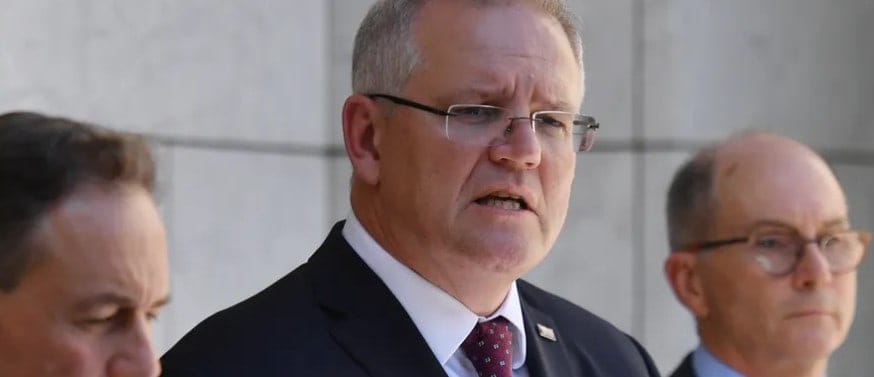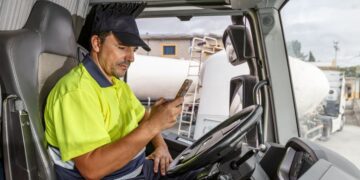The federal government has activated its emergency response plan to deal with a spread of the coronavirus locally, in anticipation of it becoming a “pandemic”.
It is also considering limited assistance for those hardest hit by the economic fallout.
Prime Minister Scott Morrison told a news conference late Thursday Treasurer Josh Frydenberg and Treasury was working on possible measures to give some relief.
Morrison stressed any measures would be “targeted, modest and scalable” – that is, able to be built on if necessary.
“This is a health crisis, not a financial crisis, but it is a health crisis with very significant economic implications,” he said.
“We’re aware, particularly in the export industry, in the marine sector, there are particular issues there especially in North Queensland, but these problems are presenting in many other places,” he said.
Also see: High-tech shortages loom as coronavirus shutdowns hit manufacturers
The tourism and education sectors are being heavily affected as the crisis worsens. But the government has stressed universities have good liquidity to deal with the situation.
The travel ban on arrivals from China has been extended for at least another week. There will be no carve out for the tens of thousands of university students unable to reach Australia.
Treasury has not yet finalised an estimate of the economic impact of COVID-19.
Cabinet’s national security committee met for three hours on Thursday to discuss the latest information on the virus and what should be done now.
“What has occurred, in particular, in the last 24 hours or so as the data has come in is that the rate of transmission of the virus outside of China is fundamentally changing the way we need to now look at how this issue is being managed here in Australia,” Morrison said.
Stressing Australia had been ahead of the World Health Organisation in its previous response, he said “based on the expert medical advice we’ve received, there is every indication that the world will soon enter a pandemic phase of the coronavirus”.
Read more: Is the coronavirus a pandemic, and does that matter? 4 questions answered
“So while the WHO is yet to declare … it’s moved towards a pandemic phase, we believe that the risk of a global pandemic is very much upon us and as a result, as a government, we need to take the steps necessary to prepare for such a pandemic.”
The actions were “being taken in an abundance of caution,” Morrison said.
Health ministers will meet on Friday to discuss the emergency planning, to respond to a future situation where there is sustained transmission in Australia – in contrast to the present containment to a handful of cases. As the virus spreads internationally, the chances increase of a major spread in Australia.
The emergency plan covers special wards in hospitals, and ensuring key health workers have access to adequate protective equipment from the medical stockpile.
It includes provision for aged care facilities to be put into lock down if necessary.
There would also be contingency alternative staffing for key facilities if staff got the disease.
On another front, Border Force would if necessary extend screening to passengers arriving from multiple countries.
Morrison said consideration was being given to how school children would be protected.
The Prime Minister emphasised there was no cause to consider cancelling events or for people not to be out and about.
“You can still go to the football, you can still go to the cricket, you can still go and play with your friends down the street, you can go off to the concert, and you can go out for a Chinese meal.
“But to stay ahead of it, we need to now elevate our response to this next phase,” he said.
“There are some challenging months ahead and the government will continue to work closely based on the best possible medical advice to keep Australians safe.”
So far, Australia had had 15 cases who had come from Wuhan and all 15 had now been cleared, he said. Eight other cases had come from the Diamond Princess. There had been no community transmission in Australia.
By Michelle Grattan, Professorial Fellow, University of Canberra
This article is republished from The Conversation under a Creative Commons license. Read the original article.












